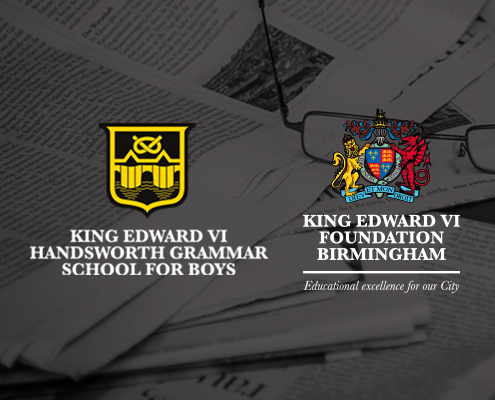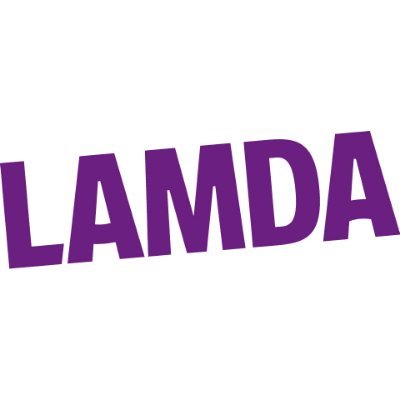Focus on Education March 2022
Opening dialogue from “The Gangs of New York”
No son, never. The blood stays on the blade.
One day you’ll understand.
Some of it I have remembered.
And the rest I took from dreams.
On my challenge, by the ancient laws of combat…
…we are met at this chosen ground…
…to settle for good and all…
…who holds sway, over the Five Points.
Us Natives, born rightwise to this fine land….
…or the foreign hordes defiling it!
Under the ancient laws of combat,
I accept the challenge of the so-called Natives.
You plague our people at every turn
But from this day out, you shall plague us no more!
The above is the opening dialogue from a film called ‘The Gangs of New York.’ You may have seen it, but if you haven’t, it is set, as the name suggests, in New York in the mid-1800’s. The plot concerns a bitter feud between the poor Protestants of the ghettos, who had been born on Long Island, and newly arrived Irish immigrants, who were Catholic.
Yet the fighting wasn’t over their different religions, so much as the fact that the immigrants were taking over the low paid jobs of the locals (which all sounds a bit familiar, doesn’t it?). If you are going to watch it, I suppose in this day and age, I should issue a warning, as it is an extremely violent and bloody film. The gangs mentioned in the title are bands of young men who come from different neighbourhoods in the slums. Each has its own mottos and colours, rules and traditions, and they take up weapons and brawl in the streets against one another, often to the death.
They fight out of a sense of grievance, both sides believing the other is claiming something that is rightfully theirs. But there are also deeper motives at work. The exercise of loyalty and friendship. A shared sense of identity, of belonging. Plus, a thirst for excitement.
I can sort of understand that because I was in a sort of gang (more a band of brothers really) myself once. I say once, technically it was just for a single afternoon. When I was at school, in the Fourth Form to be precise. There was another school nearby who were our arch rivals. All of whom were filthy rich, stuck up, arrogant, entitled, and pathetic. Or so we believed. In truth, none of us had ever been there, or even met any of its students. But that is how discrimination and intolerance is born, I suppose. Out of ignorance.
Anyway, one day word reached our ears that the boys from this other school had challenged our school to a huge fight. They had supposedly called us all sorts of names, none of which I can repeat here today. Suffice to say, our honour was at stake. Vengeance was called for. And so, our sort of gang was formed. Not ever having been to a street brawl before, none of us really knew quite what was required. The fight was scheduled for after school on a Thursday. So, we set off for the local park, where hostilities were supposed to take place.
I remember feeling a bit scared; the only fights I had been in up to then were with my brothers, and they usually ended when our mother appeared. But I also clearly remember those sensations I referred to earlier.
A sense of righteousness. How dare they belittle my school? And loyalty. I was pumped up, keen to defend my mates, to fight for our collective honour. And, if I am honest, a little bit of adventure. A break from our normal boring afternoons.
So, there we were. A sort of street gang/band of brothers. And like any swelling crowd, we hyped each other up, feeding of the bravado of the mob. We were going to teach our enemy a lesson. Into the park we poured, waving our arms and chanting. Bent on violence without really knowing why. Convinced of our superiority and how just our cause was. Into the park, that was empty. Empty, except for one lone police officer, who was sitting on the bonnet of his car eating a sandwich. “Ah, boys” he smiled. “Heard you might have been coming. What are you up to now?” A bit of panic and confusion amongst us, and then one of my more quick-thinking mates piped up, “We’ve got Cricket practice, Officer.” “Oh. Really?” said the policeman. Caught red handed!
I don’t want to relive the humiliation that followed afterwards. Let’s just say that the trouble we got into at school the next day was only eclipsed by what happened when the policeman delivered us back to our parents.
Years later, I met a guy who had gone to that ‘other’ school in the same year of the great fight that never happened. He too remembered the incident, but in his version, it was my school that had supposedly been the aggressor. My mates who had abused his fellow students. Us who challenged them to fight. It would seem that neither side actually knew anything other than rumour and speculation.
It also turned out that he wasn’t an obnoxious person either. And he kindly admitted that I didn’t seem to be one of the ignorant heathens he had been told went to my school. It is probably a good thing our two sort of gangs never did arrive in the same place that day, as I doubt we would have recognised the enemy when we saw them.
Gangs, tribes, extended families, sports teams and their supporters, political parties, religious groups, ethnicities, armies, whole states, entire nations; there are no end of groups in the world for people to align themselves with. Nothing wrong with that, we are social creatures, made to bond with each other. But each of us is a sovereign individual too. We aren’t always bound by all that a group demands, and we aren’t personally responsible for everything that it does.
Loyalty and allegiance have a part to play in our lives, but so too does independent thought and personal values. I raise that here because I believe it is very important to encourage our students to think for themselves about issues of conflict. To be able to discern when you support the views of a group to which you feel you belong, and when you disagree. To know when to stand in solidarity with “your” people, and when to stand apart.
There is no shortage of strife in the world today, and much of it often seems to be on the verge of erupting into violence. Religious divides, like those portrayed in ‘The Gangs of New York’, still simmer. A few weeks ago, saw the anniversary of Bloody Sunday, a dark day in the Troubles in Northern Island. Atrocities are still committed in many other countries today in the name of religion. The US is still counting the cost of the insurrection that saw thousands of people storm the Capitol Building last year. Death, injury and destruction in the name of politics.
And street gangs still exist of course, in New York and in every major city on the planet. You only have to look at the appalling statistics for knife crime in the UK to know that sort of brutality of tribal violence continues even on our doorstep.
Violence doesn’t have to involve death or injury either. Over the pandemic years, we have witnessed disruption and destruction of property from other groups who have banded together over a shared belief. Statues toppled, monuments defaced, motorways brought to a standstill by protestors gluing themselves to the road.
Then of course, there are the biggest gangs of all; entire nations squaring up to each other. Tensions rising between China and Hong Kong. Today, the awful spectre of war in Ukraine and the atrocities that are taking place as a result of the Russian invasion.
Many of you will feel a connection to some of those groups I just named. Fans of particular Sports teams. Protest movements whose aims you support. Political parties. Religions. Your own nationality. My point is that whilst it is perfectly normal to share a belief, or claim an allegiance, with any group, that does not mean you have to own all that is done in its name.
Whether it is naïve schoolboys or entire armies with ballistic missiles, violence never achieves its aims and you don’t have to condone it, even if you support those aims yourself.
Stay well and safe.
Be kind to yourself and others.
Best wishes,
Dr Bird


























